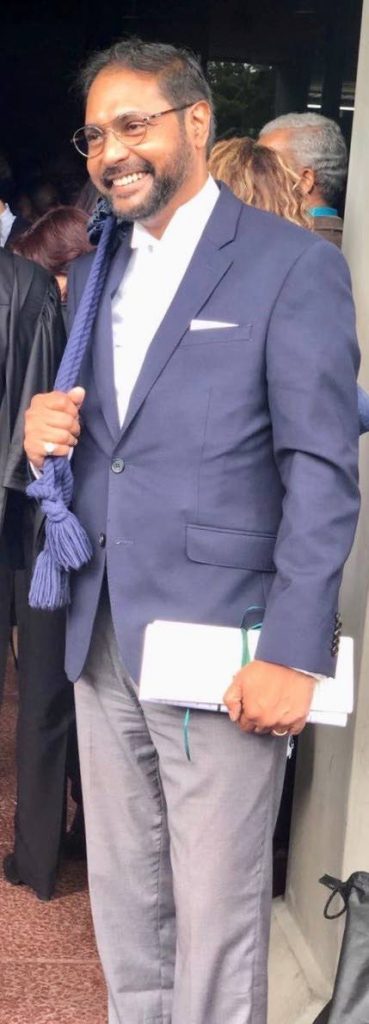I am, myself, the state

DARRELL P ALLAHAR
LOUIS XIV, King of France, uttered the words “L’etat c’est moi” (I am, myself, the state) in 1661, where he announced that he was his own first minister and intended to rule as an absolute monarch. Louis believed that he had a divine or God-given right to rule France without consulting parliaments, ministers or anybody else.
In 1962, Queen Elizabeth II by Order in Council gave us our independence Constitution. In 1976, our Parliament passed our present Constitution, establishing our status as a republic.
We celebrated 58 years of independence on August 31.
Two days before Independence Day, the Senate was debating a bill to amend the Public Health Ordinance to introduce fixed penalties for offences under the ordinance.
In that debate, Opposition Senator Jayanti Lutchmedial had complained that the bill amounted to a “blank cheque” in that the Parliament was being asked to sign off on merely a system to fine people and enforce penalties.
All of this, in her view, without the Parliament having any input into the formulation of the covid19 regulations and, by extension, the things that would constitute offences under the law.
In answer to those concerns by Lutchmedial, the Attorney General confidently expressed the view that the Public Health Ordinance, being on the law books since 1915, was existing law and that the Government elected to use the device of making regulations under that ordinance rather than suspending constitutional rights by declaring a state of emergency to deal with the covid19 pandemic.
At that sitting, when the Senate considered the bill in that committee, the Attorney General gave assurances that the details of regulations to be introduced for the wearing of face masks in public would have to be worked out by the Cabinet.
On the eve of Independence Day, the Minister of Health published new covid19 regulations which included a requirement to wear face masks in vehicles and in public spaces.
In those regulations, children under the age of 11 were not required to wear a face mask when travelling in a vehicle and children under the age of five were not required to wear a face mask in a public space.
On Independence Day, the minister published a corrigendum in which errors in the covid19 regulations he had made the day before were corrected, including changing the maximum age of children required to wear a face mask, whether in a vehicle or in public, to eight years.
On the same day, the minister published a fresh set of covid19 regulations which made further alterations to those regulations published on the eve of Independence Day.
It would appear that despite the Attorney General’s noble assurances in the Senate, it took the Minister of Health at least three times in the space of two days for him to get the new covid19 regulations right.
So here we are with a Constitution that is supposed to ensure the separation of powers, where parliamentarians make the laws and Cabinet and the Executive implement those laws. A Constitution where fundamental human rights are supposed to be respected and protected. A Constitution which is celebrated every August 31 along with our flag, our coat of arms and all of the other symbols of nationhood.
Regrettably, the pandemic has now placed our Constitution into the realm of a mere symbol, with no real or practical value beyond the lofty words of its preamble.
Why is that so?
It is because the Government is allowed to regulate our conduct and interfere with our fundamental rights by making covid19 regulations without involving the Parliament, which under the very Constitution requires special majorities to interfere with those rights.
It is because those covid19 regulations were made by a minister and his team of technocrats on the strength of an ancient ordinance passed when we were a Crown Colony and where there was no Parliament, and certainly where there was no constitutional guarantees and fundamental rights and freedoms.
It is no wonder then that the minister took three tries before he was satisfied that he got it right. He did not see the need to invoke the collective wisdom of all parliamentarians in both the House and the Senate.
So, after 58 years of celebrating ourselves as a liberal and constitutional democracy, many of us do not see anything wrong with a government functionary making rules, enforceable by hefty fines without a court hearing, for how we conduct our affairs and move about our daily lives.
It is as if the court, the Parliament and the Executive are now acting as one, just like Louis XIV when he said: “I am, myself, the state.”
It is just as well that on Independence Day this year there was no parade, no pomp and ceremony and no music in the Savannah.
It was the day the music died.
Darrell P Allahar is an attorney


Comments
"I am, myself, the state"